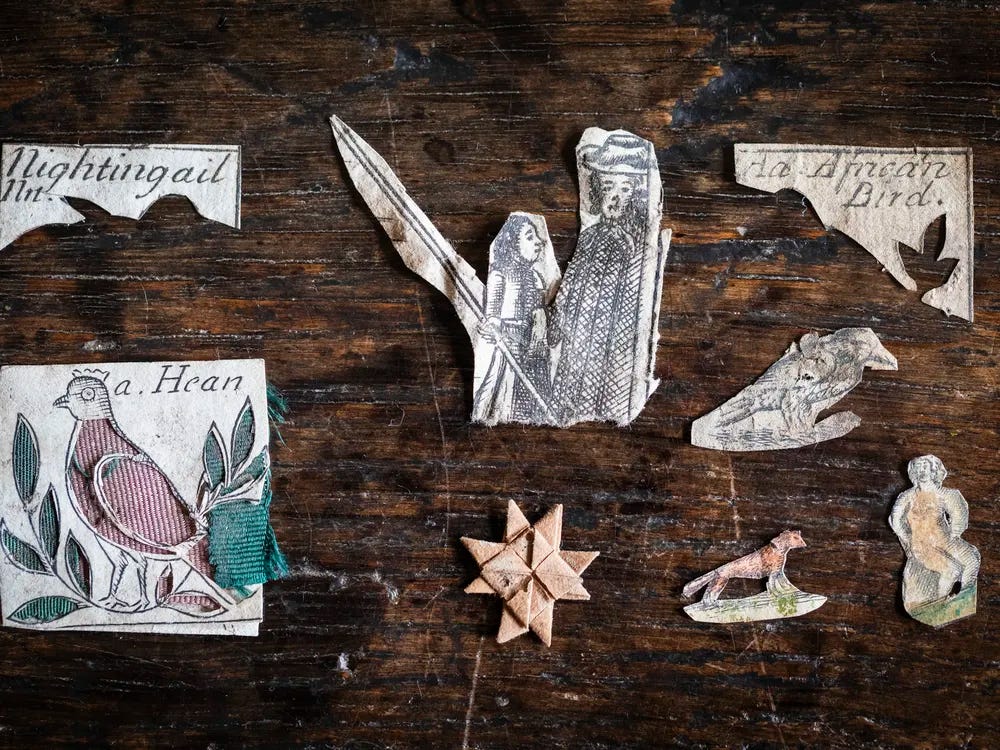Unruly History in the News #67
Hey everyone,
I’m usually beginning my summer hiatus at this time, but since I haven’t been able to produce episodes for a while, I’m going to continue doing these weekly news roundups throughout August.
This coming week I will have more for you about the future of Unruly Figures. To accomodate going back to school, I’m going to shift some things around, add in some things and take out others. As I said, more soon. Until then, more of history acting unruly in the news:
It’s Olympics season! Did you know that for the first half of the 20th century, the Olympic committee gave out medals for art as well as athletic ability? They key was that the art had to retain athleticism in it.
The French love a protest, and the Olympics were not spared. The question being asked in their counter-Olympics protests this week is, “Who do the Games really benefit?”
Waiting for Godot premiered 69 years ago this week. Since then it has been one of the most produced plays in theatre history. So… Why do we keep waiting for Godot (and is he ever going to get here)?
The last few days of this week have seen the highest temperatures ever recorded by scientists. Friday shattered records, only for Saturday to shatter them again. This year, the planet has been consistently 1.5 degres hotter than average preindustrial levels, a fact which scientists say puts us on the precipice of ecological disaster.
Meanwhile, on Thursday NASA announced that they had evidence of life of Mars. So why does no one care?
Using a 4,000-year-old clay tablet as a guide, a team of archaeologists and engineers built a replica of a Bronze Age Magan boat out of reeds and goat hair. It sailed over 50 nautical miles and reached speeds of 5.6 knots.

This Magan boat replica sailed in the Arabian Gulf, passing dozens of tests along the way. Image courtesy of Emily Harris / Zayed National Museum. Speaking of naval things—the US Navy just pardoned 80 Black service members who refused to return to work after a fatal explosion at Port Chicago, California on July 17, 1944. The explosion had killed 320 people already, and the Navy punished Black servicemembers who weren’t ready to return to work the next day while white servicemembers were given the day off and hardship pay. The Navy, at the time, was still segregated.
And speaking of Saudi Arabia (one back), these beehives in Saudi Arabia are thought to be over 1,000 years old.
This Nashville museum just repatriated hundreds of pre-Columbian artifacts to Mexico. But first they put the artifacts on display to explain the repatriation process, which is kind of cool.

A visitor at “Repatriation and Its Impact.” Courtesy of the Nashville Parthenon. Source. What the Epic of Gilgamesh can tell us about ancient Sumerian society.
History is often considered hte most boring class by high schoolers. Is there a better way to teach it?
The Beijing municipal government has just announced plans to open up 13 Ming-Era tombs to the public by 2030.
The ruins of a pre-14th century palace that housed dozens of Popes has been found in Italy.
A 13-year-old kiddo discovered a 3000-year-old ring while on a hike. It depicts the Roman goddess Minerva.
Also, a Roman-Era sarcophagus was discovered on Varna Beach, which is one of Bulgaria’s most popular tourist destinations. (Makes you wonder what’s under your feet on your summer vacation, doesn’t it?)
And speaking of kiddos, these paper carvings made by girls in the 17th century were just discovered under floorboards in Sutton House. They are currently on display.

These were made by preteen and teenage girls in the 17th century. They survive 350 years under a floorboard. Source: National Trust Images / James Dobson Carvings of several pharaohs were just found in the Nile River. They had been hidden by the rising water levels after hte bulding of the Aswan Dam in the 60s.
How one man discovered where the abbreviation “OK” came from—and no, it wasn’t from a presidential campaign like many of us were taught in school.
More surprises from the Tomb of Cerberus in Giugliano, Italy. This time it’s a corpse covered with a shroud, with ointment and perfume containers nearby.
How this early 14th-century affair led to the Hundred Years’ War.




